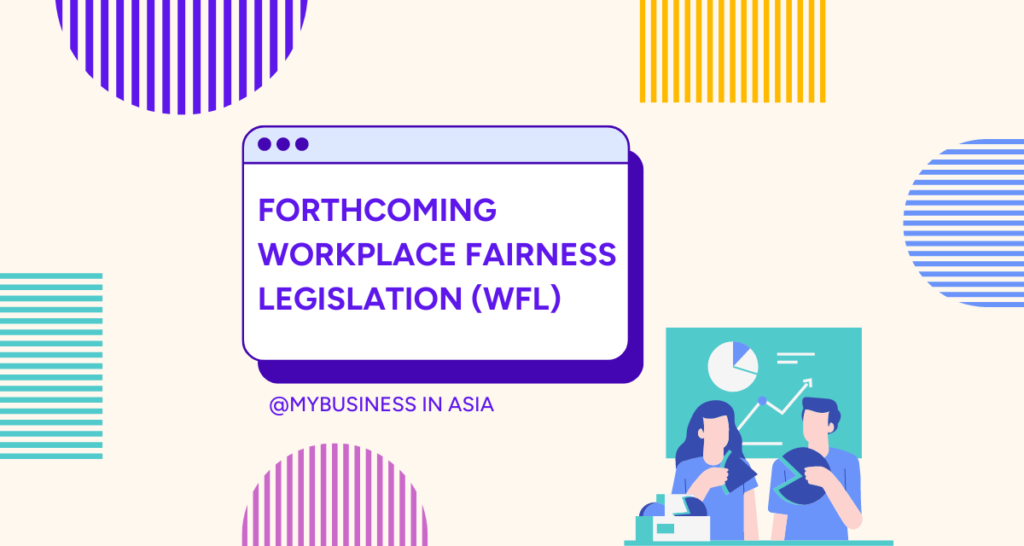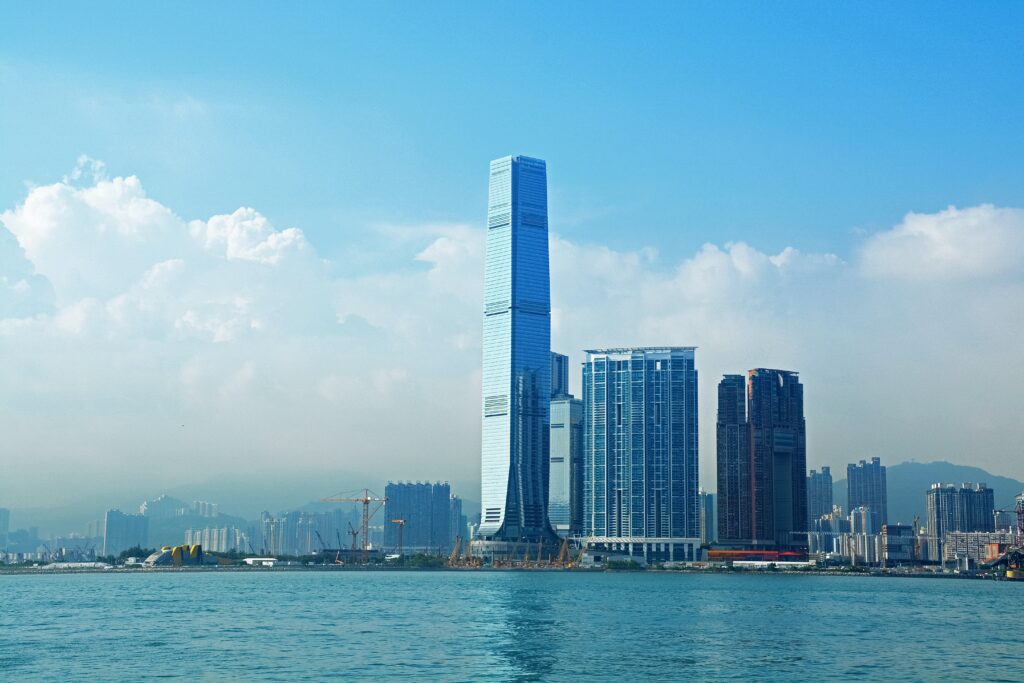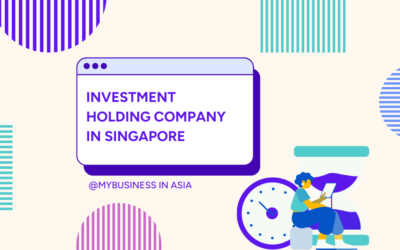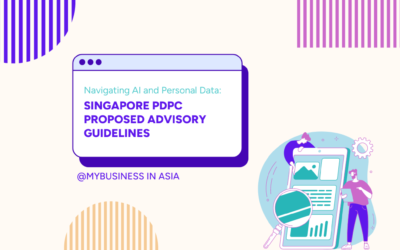
Singapore is set to enact a new workplace discrimination legislation, which aims to formalize the existing Tripartite Guidelines on Fair Employment Practices (TGFEP). The legislation, known as the Workplace Fairness Legislation (WFL), seeks to ensure equal opportunities and a level playing field for all employees in Singapore.
Its aim is to address discrimination, promotes fairness, and establishes guidelines for employers to create inclusive and non-discriminatory workplaces.

.
About MyBusiness in Asia – MBiA
We are a tech multi-disciplinary advisory firm providing accounting, tax and corporate secretarial solutions to entrepreneurs, startups and SMEs for all their business matters.
Our experts help you to understand all aspects of doing business in Asia. Feel free to reach out to know more.
Workplace Fairness Legislation
It was announced in 2021 that a new workplace discrimination legislation would be enacted in Singapore.
Once the WFL becomes law, employers will need to review their employment practices and documentation to ensure compliance. While the recommendations for the WFL align with the TGFEP, there are additional areas of compliance that employers must consider. Organizations with fair and progressive employment practices will have an advantage in adapting to the new legislation.
Compliance Considerations for Employers
The WFL is expected to explicitly prohibit discrimination based on protected characteristics such as age, gender, race, religion, and disability. Employers will need to review their hiring processes, promotion policies, and treatment of employees to ensure fairness and non-discrimination. The legislation may also require effective grievance handling processes to address employee concerns and complaints promptly and fairly.
Employers who have already established anti-discrimination policies and effective grievance handling procedures will be better prepared for the eventual enactment of the WFL. Therefore, it is advisable for employers to conduct a comprehensive review of their current employment and HR documentation, ensuring alignment with best practices and compliance with evolving employment laws in Singapore.
Key Recommendations and Implications
In February 2023, the Tripartite Committee on Workplace Fairness released an interim report containing 20 comprehensive recommendations for the upcoming Workplace Fairness Legislation (WFL). These recommendations have the potential to significantly impact the management of employment disputes in Singapore, fostering a more inclusive and equitable work environment.
One noteworthy recommendation encourages parties involved in disputes to explore non-monetary remedies. This shift towards restorative justice practices aims to promote reconciliation and positive working relationships.
Another proposal suggests empowering the Employment Claims Tribunal (ECT) to dismiss frivolous or vexatious claims and impose costs on claimants who file such meritless claims. This is to discourage baseless claims and ensures a fair and efficient resolution process.
Furthermore, the committee proposes a range of penalties for companies or individuals found to be violating the WFL. These penalties include corrective work orders, financial fines, and work pass curtailment. By implementing these penalties, the legislation aims to promote accountability and deter non-compliant behavior.
Considerations of the WFL for Employers in Singapore
In conclusion, the recommendations of the Tripartite Committee on Workplace Fairness have the potential to bring about significant changes in the management of employment disputes in Singapore. They promote inclusivity and fairness by emphasizing non-monetary remedies, deterring baseless claims, and imposing penalties for violations of the WFL.
Employers should closely consider these proposals and adapt their practices accordingly. For further information or assistance regarding the WFL or any other employment matters in Singapore, please contact us.
If you appreciate our content, you will also appreciate our other articles:
- Trends and View of the Startup Environment in Hong Kong
- Understand how the ONE Pass and how to apply for this special Pass in Singapore.
- Apply for an EP in Singapore and understand the new COMPASS framework.
- Learn everything about the Stamp Duty for shares and calculator in Singapore
- Making Sense of the Dividends Taxation and Regulations in Singapore



